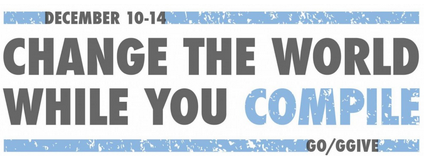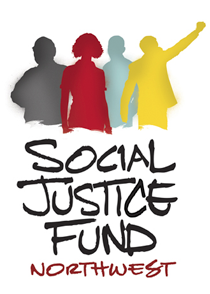
Life can get hectic for a mid-twenties software engineer at a big company. You’re working long hours at an exciting, fast-paced job and when you’re not grinding away at the computer, eating and sleeping likely take up your remaining time.
It’s only natural that there’s not much time to think about philanthropy and giving back. What two University of Washington alumni and Google Seattle engineers have done to fix that problem is pretty remarkable.
G-Give is a week-long Google giving program featuring different local non-profits each day. Gifts to the non-profit are matched twice: once by Google — up to $12K/employee — and once by a sponsor, who is usually a generous Googler that feels strongly about a non-profit.
Hence, if an employee donates $100, that turns into $300 for the non-profit.
It’s the brainchild of Jessan Hutchison-Quillian and Krista Davis, former CSE students at the UW. Given average salaries for Google employees, they decided that their colleagues just needed an easier and more accessible way to donate to an organization they like.
After a couple years of using Google’s 20-percent time to raise awareness about the Google Match program, there wasn’t much traction. But then last November, the pair worked nonstop for three weeks in their spare time developing a software platform for the G-Give model to include the “sponsor” addition. In just two clicks — no long forms to fill out, no registration pages — employees could now select an organization and have their donation tripled. The money was simply deducted from their pay.
 The result was remarkable. Showcasing nine organizations that were chosen based on passionate advocacy of the employee sponsors, G-Give helped double Google Seattle and Google Kirkland’s philanthropy from the year before. Places like the UW computer science department received more than $35,000 in donations for scholarship money, which turned into $100,000 when matched.
The result was remarkable. Showcasing nine organizations that were chosen based on passionate advocacy of the employee sponsors, G-Give helped double Google Seattle and Google Kirkland’s philanthropy from the year before. Places like the UW computer science department received more than $35,000 in donations for scholarship money, which turned into $100,000 when matched.
Hutchison-Quillian wasn’t too surprised — “giving makes sense,” he says — but he did find it interesting to see how improving the overall process helped employees donate more.
“The surprising thing to me is how much of a difference the ease of donation made,” he said. “I would not have thought that one of the biggest barriers to getting people to donate was having to fill out an online credit card form, but our experience here seems to indicate that.”
The program hits home for Hutchison-Quillian, who was raised by lesbian partners. Had it not been for programs like Social Justice Fund, which is today’s featured non-profit, his family couldn’t have existed.
It’s gratifying for him to watch his colleagues do something about issues that matters to them.

“The authenticity of seeing one of your peers really being willing to take a stand for something that matters to them is super important,” he said. “This is different than a centralized campaign where you pick one organization that most people can agree with, but maybe there isn’t a truly passionate champion for it.
“Our end goal is not to get people’s money — G-Give is actually a way to facilitate real, deeper connections between Googlers and causes they are passionate about. We picked donations as the area to focus because we believe Googlers have more money to work with than time.”
It’s worked so well that now Hutchison-Quillian is doing this as a full-time job. He worked on video chat for five years prior and says that while it was important, the market will eventually solve problems like video chatting.
“Working with community organizations feels like something where my individual efforts may have a more lasting long-term impact for people both locally and globally,” he said. “I’ve been lucky to have had the opportunity to make a difference in both my roles here.”
The model is being replicated this year and the San Francisco office is joining in as well. Here’s a list of the participating Seattle non-profits for 2012:
12/10 — Solid Ground (Seattle Office) and Hopelink (Kirkland Office)
12/11 — Google Endowed Scholarship for UW CSE
12/12 — Vittana Foundation
12/13 — Social Justice Fund Northwest
12/14 — Post-Prison Education Program
Google also put on another cool giving program in October called 24 Hours of Good. 52 students from the UW worked on 13 projects and used their engineering skills to build programs for local non-profits.



